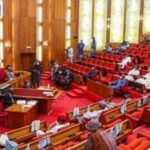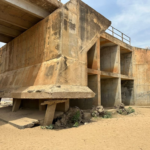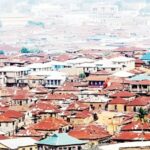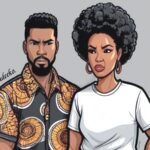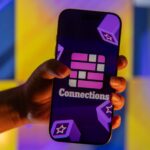•Country drops in Digital Quality of Life
•Ranks behind Kenya, South Africa
•FG reacts, calls for regional collaboration
By Prince Osuagwu, Hi-Tech Editor & Juliet Umeh
A new study by a virtual private network, Surfshark, has put Nigeria on the sword, over poor and unaffordable internet services, saying Nigeria’s internet service provision does not match its status, size and population.
The report made it clear that Nigerians are laboring to access internet which has been made dividend of democracy, worldwide.
According to the report, for these failings, the country’s digital quality of life becomes so poor and increasingly dropping in standard.
However, it appears the country is rallying support within its ministries, directorates and agencies, MDAs and among other countries in continent to ensure that the weak becomes strong and the strong, stronger.
The verdict of the report was damning on the country. “The internet is highly unaffordable in Nigeria compared to other countries. Nigerians have to work 35 hours 25 minutes a month to afford fixed broadband internet. It is 119 times more than in Romania, which has the world’s most affordable fixed internet. Romanians have to work 18 minutes a month to afford it.
“Nigerians have to work 2 hours 59 minutes 15 seconds a month to afford mobile internet. This is 11 times more than in Luxembourg, which has the world’s most affordable mobile internet. Luxembourgers have to work 16 minutes a month to afford it.
“Nigeria is 73rd in the world in e-security, which is seven places lower than last year. The e-security pillar measures how well a country is prepared to counter cybercrime, as well as how advanced a country’s data protection laws are. In this pillar, Nigeria lags behind South Africa which is 72nd and Kenya -65th. Nigeria is unprepared to fight against cybercrime, and the country has very low data protection laws.
“Nigeria is 93rd in e-infrastructure and 88th in e-government. Advanced e-infrastructure makes it easy for people to use the Internet for various daily activities, such as working, studying, shopping, among others. This pillar evaluates how high internet penetration is in a given country, as well as its network readiness to take advantage of Information and Communication Technologies. Nigeria’s internet penetration is moderate at 73 percent — 86th in the world, and the country ranks 105th in network readiness.
The Surfshark’s DQL, ranks 121 countries by their digital wellbeing based on five core pillars, and has ranked Nigeria 88th in the world.
Surfshark’s spokeswoman, Gabriele Racaityte-Krasauske, said: “In many nations, digital quality of life has merged into the broader concept of overall quality of life.
“There’s no other way to look at it now that so many daily activities, including work, education, and leisure, are done online. That’s why it’s crucial to pinpoint the areas in which a nation’s digital quality of life thrives and where attention is needed, which is the precise purpose of the DQL Index.”
“According to our study, Nigeria ranked 88th in the annual Digital Quality of Life Index, DQL, globally, dropping by two places from last year.
“The country also trails South Africa and Kenya, which ranked 72nd and 76th respectively in the fifth annual Digital Quality.
“In other pillars of the ranking, Nigeria performed best in internet quality, claiming 62nd place, while facing challenges in internet affordability, and ranking 108th.
“Also, Nigeria ranks 73rd in e-security, 88th in e-government, and 93rd in e-infrastructure. But, in internet quality, Nigeria is just around the global average. Fixed internet averages 25 Mbps in Nigeria. To put that into perspective, the world’s fastest fixed internet — Singapore is 300 Mbps.
“Meanwhile, the slowest fixed internet in the world — Yemen’s — is 11 Mbps.
Mobile internet averages 47 Mbps. The fastest mobile internet — the UAE’s — is 310 Mbps, while the world’s slowest mobile internet — Venezuela’s — is 10 Mbps.
“Compared to South Africa, Nigeria’s mobile internet is 31% slower, while fixed broadband is 64% slower. Since last year, mobile internet speed in Nigeria has improved by 87%, while fixed broadband speed has grown by 33 percent.
Nigeria Calls for collaboration on secure internet
However, Nigerian government appears to have reacted to the development, calling for collaborations within African countries, to make the weak strong and the strong, stronger.
At the recently concluded Africa Internet Governance Forum in Abuja, the Nigerian government called for a free and secure Internet for Africa, which is capable of bridging the digital divide and creating innovative opportunities within the continent.
Minister of Communications, Innovation and Digital Economy, Dr. Bosun Tijani, who made the call, said Nigeria is committed to necessary collaborations and international dialogues to achieve these objectives.
The Minister, who addressed the forum virtually, said Nigeria, as the largest telecommunications market in Africa, is conscious of all the dynamics of emerging technologies around Internet usage and would continue to work with countries in Africa on different fronts to ensure that the Internet is effectively governed so its innumerable resources can be leveraged for citizens and nation’s growth.
He said: “The need for our consistent collaboration to develop our economy collectively is preeminent in the agenda of the current administration in Nigeria. It is through this kind of forum that we can bridge the digital divides, enhance cybersecurity, ensure digital rights and foster innovation. It is, therefore, our collective duty to ensure that the Internet remains open, safe and beneficial for all,”
Meanwhile, Executive Vice Chairman of NCC, Prof. Umar Danbatta, provided insights on the country’s commitment to driving a secure Internet ecosystem through various regulatory initiatives. Danbatta stated that Nigeria has attained tremendous growth in broadband penetration, basic Internet usage, and voice subscriptions and recorded impressive contributions to the nation’s Gross Domestic Product (GDP). He however confessed that the country was focused on sharing experiences with other sister nations as well as learning from the AfIGF parliamentarians from Africa to collectively drive the frontiers of the ideals of proper utilization of Internet resources to promote socio-economic development on the African continent.
The post ‘Internet highly unaffordable in Nigeria’ appeared first on Vanguard News.
